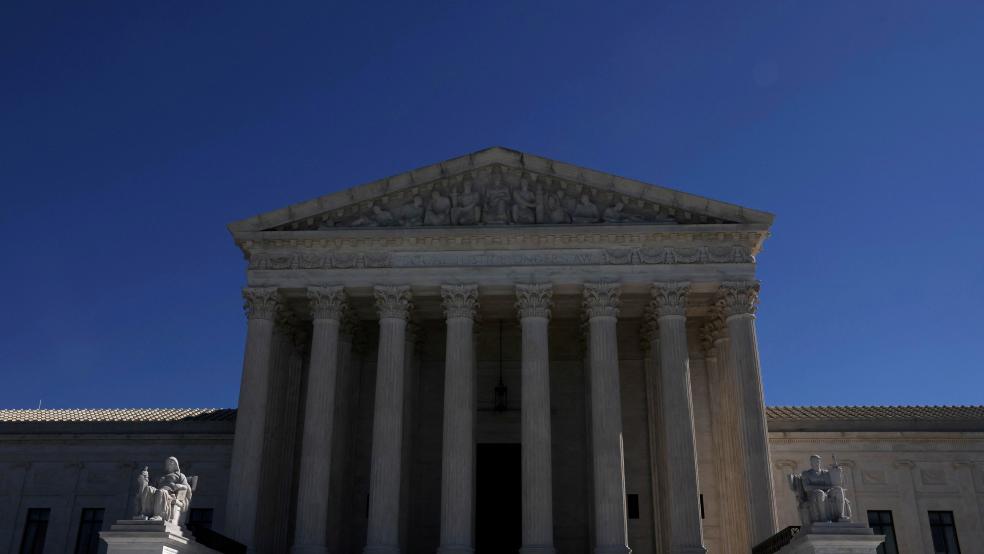The Supreme Court on Thursday upheld an obscure tax on foreign income imposed under the 2017 tax law, rejecting a challenge by business interests that legal observers warned would have had massive repercussions for the tax code.
In a 7-2 decision in the case, Moore v. U.S., the court left in place the 2017 provision that imposed a one-time tax on the undistributed profits of some American investors in American-controlled foreign businesses. The Mandatory Repatriation Tax, as it is called, was meant to address trillions of dollars in profits parked in foreign countries to shield them from U.S. taxes, offsetting other benefits of the new law. It was reportedly expected to raise $340 billion in revenue over 10 years.
The provision was challenged by Charles and Kathleen Moore of Redmond, Washington, who said they got hit with a tax bill of nearly $15,000 resulting from their pro-rated share of income generated by a company based in India that they invested in, KisanKraft. Their lawsuit argued that the tax violates the Constitution — though analysts also suggested it was an attempt to preemptively prohibit Congress from introducing a wealth tax.
The ruling, written by Justice Brett Kavanaugh, holds that the tax does not violate Congress’s constitutional authority. Kavanaugh wrote that the tax the Moores were challenging was similar to others on partnerships and S corporations. He echoed the Biden administration’s argument that striking down the tax “could render vast swaths of the Internal Revenue Code unconstitutional” and potentially “deprive the U. S. Government and the American people of trillions in lost tax revenue.”
NYU Law Professor David Kamin, a tax and budget expert who served in the Obama and Biden administrations, wrote in a social media post: “The Supreme Court today avoided undermining the income tax and rightly ruled against the Moores and a radical legal theory that could have handed corporations and high-income Americans a giant tax cut that Congress never legislated.”
What the court did not address: “[T]he larger significance of the ruling is what it didn’t do,” writes Mark Sherman of the Associated Press. “The case attracted outsize attention because some groups allied with the Washington couple who brought the case argued that the challenged provision is similar to a wealth tax, which would apply not to the incomes of the very richest Americans but to their assets, like stock holdings. Such assets now get taxed only when they are sold.”
Kavanaugh’s ruling made clear that it was only addressing the narrow question before the court and that “nothing in this opinion should be read to authorize any hypothetical congressional effort to tax both an entity and its shareholders or partners on the same undistributed income realized by the entity.”
Some analysts say that the court’s decision, and the details of the justices’ opinions, cast further doubt on the idea of a wealth tax and could open the door to further legal challenges to tax laws. “Kavanaugh’s opinion left the issue of realization open and there are now four justices, one shy of a majority, who have declared their opposition to taxes, like a wealth tax, that don’t require realization,” Sherman writes.





